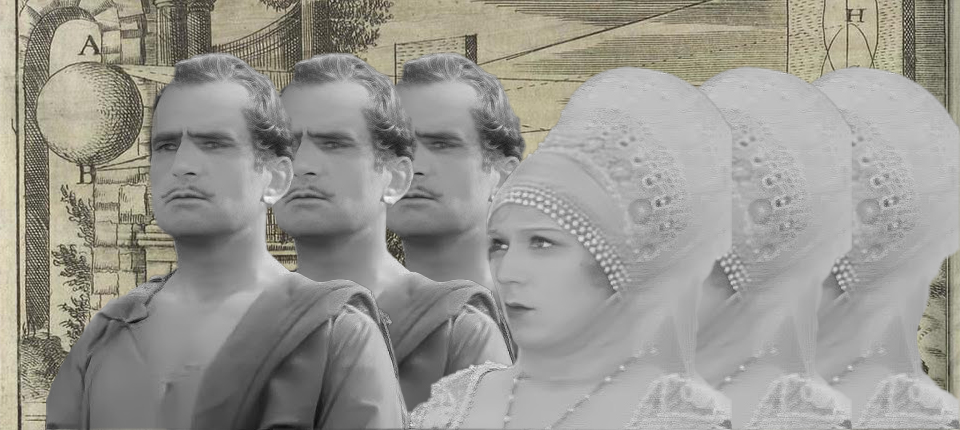Change and instability are to be expected in politics, especially in an election year. And boy, has the United States of America delivered. From the disastrous debate performances to the assassination attempts, the US presidential race has been stormy, to say the least. But when it comes to the ideas underlying politics, we expect more stability. If politics is like weather – prone to sudden shifts – political ideas and ideologies are more like climate: evolving slowly over time, with gradual and predictable patterns. Recently, however, the abrupt shifts in political ideas on both the left and the right have been positively weather-like, especially when it comes to the concept of freedom.
We all know the standard picture. Conservatives claim to be the true champions of freedom, emphasizing negative liberty – freedom from external constraints, particularly from government regulation. Progressives are more ambivalent. Freedom is important, yes, but must be balanced with equality of opportunity or outcome, which often requires government action to address structural barriers such as poverty and discrimination.
This picture no longer matches the reality. On the one hand, the Democratic Party in the US is suddenly the great defender of negative liberty. “Mind your own damn business!” is Tim Walz’s message to the government when it comes to reproductive rights, sexuality and freedom of speech. And it’s no coincidence that Kamala Harris’s walk-on song for her rallies is Beyoncé’s “Freedom”, with its chorus of “freedom, freedom, where are you?” The answer progressives seem ready to give is: right here.
The shift on the right is even more drastic. Post-liberal scholars and pundits converge on this point: if freedom got us into this mess – of a shredded social fabric, plummeting religious belief and church attendance, the normalization of divorce, sexual libertinage, drug addiction and deaths of despair – more freedom sure as hell isn’t going to get us out. Liberalism, thunders Patrick Deneen in his influential Why Liberalism Failed (2018), “aimed at achieving supreme and complete freedom through the liberation of the individual from particular places, relationships, memberships, and even identities – unless they have been chosen, are worn lightly, and can be revised or abandoned at will”. Say what you like about post-liberals today, they are not friends of personal choice and liberty.
The rejection of freedom isn’t exclusive to American conservatism. Political leaders worldwide renounce negative liberty and the freedom for individuals to decide for themselves how they wish to live. Indeed, many of the most powerful nations on Earth are ready and willing to tie their legitimacy, stability and even identity to the promotion of a specific conception of the good life and the good subject. Xi Jinping has announced a new model of modernization for China to “enrich the spiritual world” of its people. In India, Narendra Modi’s government has infused populism with Hindutva, an ethno-national and spiritual doctrine. And for Maga-style movements around the world (in Brazil, Hungary and Russia, for instance), the prosperity of a country is pegged to the restoration of a particular way of life for its members. Make no mistake: an increasing number of regimes do not believe that a hundred flowers should bloom within their borders. They know what a life worth living is for their citizens, are confident that their vision is popularly supported, and are prepared to harness formidable persuasive and coercive powers to advance it.
Commentators often assume that such illiberal regimes rule through repression and that their rulers are in it for the goods of tyranny: power, money, glory, women and the like. This is the thrust, to name a recent book, of Anne Applebaum’s Autocracy Inc: The dictators who want to run the world (reviewed on p8). Such views are not exactly wrong, but they miss the deeper picture. Many illiberal regimes, along with their conceptions of the good life, uphold great human goods – goods, moreover, that liberalism often diminishes or fails to deliver. Filial piety and respect for just hierarchies are central to the selfhood of the Chinese Communist Party. The illiberal Catholic right in the US, for its part, elevates loyalty, piety and self-sacrifice. These may not be highly valued goods for progressives and liberals. They may even be attacked as root causes of oppression. But they are undeniable human goods, and if we do not acknowledge their appeal to people who see the world differently, then we miss the main driver of the spread and stability of illiberalism today.
Enter Timothy Snyder and his new book, On Freedom. Snyder is one of the world’s most prominent public intellectuals. A regular guest on major news networks, he frequently writes for leading newspapers and advises a wide range of figures, including the Ukrainian president, Volodymyr Zelensky, and the UN Security Council – he has even given a presentation to the CEOs of Walmart and Disney. So widespread is his influence that just last week in Australia, where I live, a bartender noticed my copy of On Freedom and exclaimed: “Snyder? I love that guy!”
A historian at Yale University, Snyder is an expert on the most pressing topics in news and politics today. In his bestselling On Tyranny: Twenty lessons from the twentieth century (2017), he explains how to resist the spread of authoritarianism both in our countries and within ourselves. His primary area of expertise, however, is Ukraine, and in The Road to Unfreedom: Russia, Europe, America (2018), and Bloodlands: Europe Between Hitler and Stalin (2010), he demonstrates how Ukraine has been at the centre of imperial ambitions and the bloodiest wars of the twentieth – and possibly the twenty-first – century.
On Freedom marks a new departure for Snyder. “If I can describe the worst”, he asks, “can I not also prescribe the best?” The answer, unfortunately, is no – or at least, not with a book based on an untenable and under-researched dualism between negative and positive forms of freedom.
Defenders of negative freedom are his antagonists. Sometimes he argues against the conservatives of yesteryear – free-market Reaganites, unrepentant neocons and aggrieved Never Trumpers – who see freedom strictly in terms of deregulation and personal choice. His argument against them is sound, namely that overzealous deregulation ignores the collective work needed to sustain essential institutions. But the debate has moved on, even as market fundamentalism in many ways persists in practice. The American conservatives who matter today, such as J. D. Vance, Steve Bannon, Stephen Miller and Kevin Roberts, the architect of Project 2025, are post-liberal and regard the deep state with as much envy as contempt. They feel it just needs new staff, loyal to their preferred moral and political order.
On one definition of negative freedom, then, Snyder argues against the ghosts of conservatives past. At other times, however, he expands his definition to encompass any view that defines freedom as the removal of barriers, including groups that no one has ever associated with negative liberty, such as Nazis (freedom from Jews), Marxists (freedom from private property) and Putinists (freedom from the imperial West).
This list isn’t just bizarre. It is wrong and stems from the main flaw of the book: its lack of engagement with the field it claims to contribute to, political philosophy (or, if you prefer, political thought more generally). To say nothing of the historical canon, the past few years have been a golden age for theories of freedom, including by historians – such as Annelien de Dijn’s Freedom: An unruly history (2020), Samuel Moyn’s Liberalism Against Itself (2023), Corey Robin’s The Reactionary Mind (2011) and Helena Rosenblatt’s The Lost History of Liberalism (2018) – all within Snyder’s field. None of these gets discussed. My objection isn’t that he fails to cite the literature – it’s that he’s out there on his own, coming up with an untenable theory.
The most serious omission concerns the key distinction in the book between negative and positive liberty. As Snyder acknowledges, it comes from Isaiah Berlin’s classic essay “Two Concepts of Liberty” (1958). But he doesn’t engage with it, and he needs to. Why? Because the concept of freedom that Berlin feared and that Snyder now champions – positive freedom – is the current darling of populists and authoritarians worldwide. On Berlin’s account positive liberty consists of the higher self’s conquest over the lower self (for example, studying rather than procrastinating, or pursuing the pleasures of literature over the fun of video games). He was concerned that the notion of positive liberty, while capable of empowering individuals to be their best selves, could be co-opted by the state to impose a particular conception of how its members ought to live and used to justify all manner of control. In other words, positive liberty is what authoritarian populists salivate over these days: a thick, value-laden conception of the true (Chinese, Indian, Russian, Hungarian, Brazilian or American) subject that licenses state power through existential and millenarian designs.
Obviously, as a defender of liberal democracy, this is not what Snyder wants. He insists that positive freedom is meant to provide the ideas and resources to build up people and institutions that are resistant to authoritarianism. Accordingly, the book is divided into five chapters, each dedicated to a different aspect of freedom that is at once institutional and personal. They are: sovereignty (to raise individuals who can make choices about which values they will pursue), unpredictability (to protect our thoughts and behaviours from tyrants or algorithms), mobility (to ensure we can all move through the social and spatial world), facticity (to safeguard truth, without which there can be no freedom) and solidarity (to acknowledge that freedom is illusory if it is not reciprocal). Now, there is nothing wrong with his treatment of these topics. But neither is there much new for readers familiar with liberal democratic principles. Understood so capaciously, “positive freedom” becomes a magnet for all the good things liberal democracies require to be stable and flourish.
I admire the author’s past work on totalitarianism and his continued advocacy for Ukraine. I also share his vision of freedom in On Freedom, which affirms morality, spontaneity and truth. Yet the book’s simplistic and moralized dualism fails to capture the many kinds of negative and positive freedom that we must both claim and guard against. More crucially, Timothy Snyder’s theory of freedom blinds him to the way authoritarians today have weaponized positive freedom to impose their conceptions of the good life. By co-opting this understanding of freedom, leaders such as Putin and Xi justify state power in the name of a higher truth – be it national identity, cultural purity, or ideological purity – leaving little room for the diversity of freedoms that he rightly values.
Alexandre Lefebvre is a Professor of Politics and Philosophy at the University of Sydney. His latest book is Liberalism as a Way of Life, 2024
The post Mind your own damn business! appeared first on TLS.

 By Times Literary Supplement | Created at 2024-10-29 21:41:40 | Updated at 2024-10-30 15:22:22
2 weeks ago
By Times Literary Supplement | Created at 2024-10-29 21:41:40 | Updated at 2024-10-30 15:22:22
2 weeks ago



